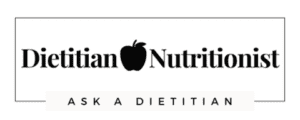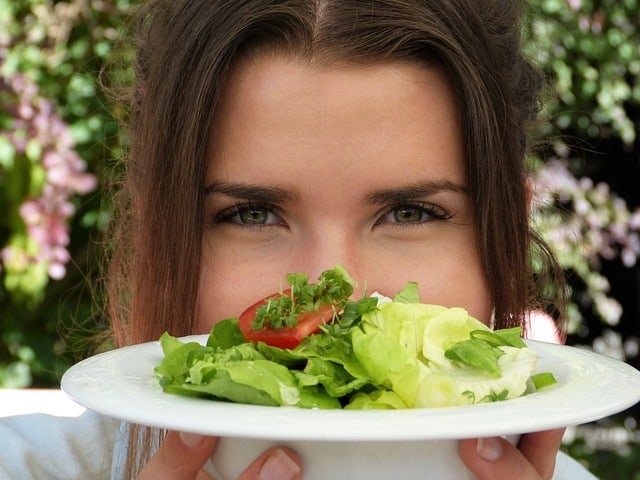If you are trying to figure out the best way to lose weight, you might feel confused with all of the diets, supplements, workout routines, body sculpting, etc that are out there. Companies make a lot of money by convincing people that they need certain “magical” things for weight loss that only their company can offer. In reality, stick to eating well and exercise and you will be just fine!
A 50 year old woman should eat around 1,500 to 2,000 calories per day to lose weight. I typically recommend to eat 300 to 500 fewer calories than normal in order to lose weight in a sustainable and lasting way. Calorie requirements depend on sex, body composition, weight, height, genetics, environment, health/conditions/medications, and physical activity levels. Calories shouldn’t be the only focus of weight loss, instead a woman should focus on intuitive eating strategies to develop longterm healthy habits.
Weight loss is all about helping your body feel safe and comfortable enough to let go of excess weight you don’t need. This is not accomplished through severe calorie restriction, cutting out certain foods and food groups, or crazy levels of exercise. Instead, listen to your body and you can eat in a small calorie deficit while adding in more physical movement to facilitate losing weight.
Read on for more information about calorie needs for adults, what constitutes a healthy weight for a 50-year old, the best diet for weight loss, and why it feels more difficult to lose weight as you get older.
Daily Calorie Needs For Adults
Sometimes we think of calories as a bad thing because diet culture always emphasizes things being “low-calorie” as the “healthier” version. But, did you know that calories are actually good for you? They provide your body with energy to not only exercise and perform all of your normal daily activities, but they also keep your organs working and your brain smart. Bottom line- you need lots of calories!
Calorie needs vary person-to-person based on a lot of different factors including gender, underlying medical conditions, height, weight, body composition, and physical activity level. The best way to figure out your calorie needs is to work with a registered dietitian who can take all of these factors into account. In fact, some places even have machines that can measure your resting metabolism which can be super helpful to know, rather than having to estimate!
If you are looking for a rough estimate of how many calories your body uses during the day, the MyPlate website is a really good resource. Select the “Resources” tab and then click “tools.” You should then see a section called “MyPlate Plan.” From here you can answer a number of questions and get an estimate for how many calories you are burning in a day.
How Many Calories Should I Eat to Lose Weight?
Eating too few calories can really backfire on you because your body no longer feels comfortable and safe. If you have calculated how many calories you are burning during a day, I recommend eating in a 300-500 calorie deficit, meaning eating 300-500 calories less during the day than you are burning.
However, it gets really hard to give your body all of the nutrients it needs when you are consuming a really small amount of food. I generally don’t recommend women eating below 1500 calories in a day or men eating below 1800 calories in a day. There may be some exceptions to this, but work with a dietitian if you think you should be eating at a lower calorie level. If you eat too few calories your body will have a harder time losing weight because you won’t be getting enough energy and nutrients.
Exercise is a great way to help create that calorie deficit without having to eat less food. Rather than thinking of the common saying, “eat less and move more to lose weight,” focus on fueling your body for the things you are doing throughout the day and eating to support your body in all the things it needs to accomplish.
Should I Track Calories to Lose Weight?
Tracking calories can be helpful for some people, but you should never get to the point where you are listening more to your calorie tracking app than you are listening to your body. Your energy needs will be different every day and counting calories can make it hard to account for that.
Here are a few ways that people can use calorie counting apps in a healthier and more helpful way:
- Use it as data, not as the regulator for what and how much you are allowed to eat.
- Use it to track carbohydrates, protein, and fat intake and figure out the distribution that feels best to you.
- Use it to bring awareness to what you are eating and how much you are really consuming. This is not to bring shame, but to enhance your ability to learn more about food.
These are a few ‘red flags’ when it comes to calorie counting. If this sounds like you, I recommend deleting the calorie tracking app:
- You rely on your calorie tracker to know how much you are “allowed” to eat for the day.
- You ignore hunger and fullness cues to save up calories for later or because you have “run out” of calories for the day.
- You think about food constantly or have a hard time focusing on other things throughout the day because you are worried about eating.
- You feel like you have to stick to a set eating plan every day that fits within your calorie limits.
- Eating out feels a little bit scary, especially if you didn’t plan for it.
- You feel guilty for going over your calorie limit, even when you feel hungry.
- Certain foods create feelings of shame or guilt when you eat them.
- You are cutting out foods and food groups because they are higher in calories, even if you enjoy eating them.
- You are overexercising, binging, or purging.
- Tracking your food is causing more stress to your life.
Tracking food intake is usually not something you should be doing continuously throughout your life. The goal is to connect with your body and learn about food and nutrition so that you don’t have to track your food and you can just rely on listening to your body.
You know yourself and your tendencies, so be open with yourself about whether tracking food intake would be more helpful or harmful for you. You are the expert on you!
What is a Healthy Weight for a 50-Year Old Woman?
Although Body Mass Index (BMI) is still frequently used to determine if you are underweight, normal weight, overweight, or obese, it is not the best tool for truly determining your health status or if you are at a healthy weight for you. BMI only uses account height and weight and does not take into account body composition, making it an inaccurate evaluation for a lot of people.
Instead of relying on a number on the scale or a BMI measurement to determine if you are at a healthy weight, it is better to go off of how you feel and how well you are taking care of your body. A healthy weight is one you can maintain without restriction and it really shouldn’t be very difficult to stay at that healthy weight if you are listening to your body and eating mindfully. Sometimes people have an unrealistic weight in mind that they hope to reach, but it really isn’t the weight that their body wants to be at.
What is the Best Diet to Lose Weight?
I strongly recommend against dieting. There are tons of diets out there that promise fast and significant results, but what they don’t tell you is that dieting is usually not successful in the long run and most people end up gaining back more weight than they initially lost.
Why do diets fail? One reason is that they work against what your body naturally wants and needs. Cutting out food groups or restricting eating to certain times is going against your body’s need for consistent nourishment from a variety of sources. If you are fighting against your body, you will eventually lose!
The better way to lose weight is to focus on consistent, sustainable healthy habits that you enjoy doing, that make you feel good, and that you are willing to continue doing.
Why is it so Hard to Lose Weight As You Get Older?
Maybe you have noticed some changes with your body as you get older. Once you hit 50, you are nearing menopause, if you haven’t hit it already. Menopause is associated with lots of changes in hormone levels that make it easier for your body to store weight and harder to lose weight!
Be patient with your body- the process of growing older is a natural one that will happen to everyone. Although it may be frustrating at times, just think of all the amazing things your body has done and continues to do!
Tips for Weight Loss in Your 50’s
So if dieting is a no-go, what do you actually do to lose weight? Establishing healthy eating and exercise patterns is the best place to focus your energy.
Here are some tips for losing weight in your 50’s:
- Eat regularly throughout the day and avoid going long periods of time without eating. This will help your body to always feel nourished and taken care of!
- Include carbohydrates, protein, and fat each time you eat and especially focus on consuming enough protein throughout the day to help maintain and build muscle mass, which naturally decreases as you get older.
- Incorporate daily exercise that you enjoy. Get creative as you find ways to get moving like walking around the mall, taking kids and grandkids to the park, dancing, hiking, doing yard work, etc.
- Focus on how you feel more than the number on the scale. The scale doesn’t always tell the full story of what is going on. Pay attention to increases in energy levels, improved endurance, better mood, improved digestive issues, and other signs like that to help you know you are on the right track.
- Practice mindful eating. Pay attention to your hunger and fullness cues, eat until you feel satisfied, and really enjoy the eating experience. Remove distractions that make it harder to eat mindfully!
Summary
Understanding how many calories your body needs during the day is an important part of reaching and maintaining a healthy weight. Nourishing your body includes providing it with enough energy and nutrients to do all of the things it needs to do during the day. As you focus on taking care of your body out of a place of love and respect, you will naturally reach a weight that is healthy for you.
Related Posts
- Why It’s So Hard For Women Over 50 to Lose Weight – And What to Do About It!
- The Best Tips for Healthy Weight Loss During 40s and 50s From a Dietitian
- How Can a 50-Year-Old Woman Lose Weight?
- What Should You Eat For Lunch to Lose Weight?
Resources
Filemon JM, Seaver V. Here’s what happens to your hormones as you age. Eatingwell.com. Published September 9, 2021.
Klemm S. How many calories do adults need? Eatright.org. Published July 30, 2019.

